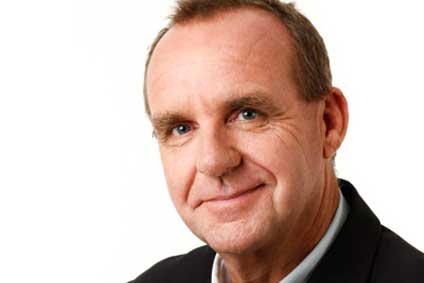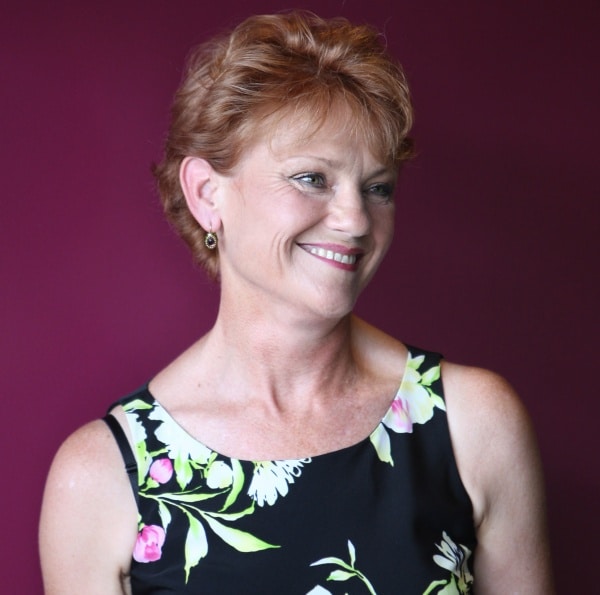Yesterday Pauline Hanson revealed that she was interested in talk-back radio.
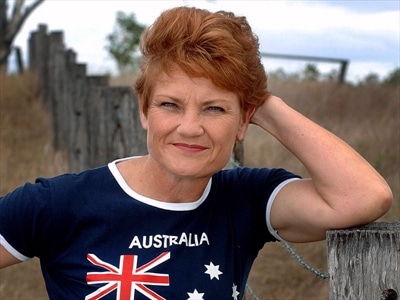
Pauline Hanson mentioned that she had been to Perth before but was in no way a local.
Steve Mills let her know that there would be a spot for her on 6PR.
Millsy said on the radio that Pauline, ‘didn’t mind having a crack’.
If she gets on the radio, we may hear Pauline Hanson’s famous catch cry ‘Please explain’ if she pursues her new career of the ‘Queen of talkback radio’.
On 10 September 1996, Hanson gave her first speech to the House of Representatives, which was widely reported in the media Australia-wide.
In her opening lines, Hanson positioned herself “not as a polished politician but as a woman who has had her fair share of life’s knocks”, and with views based on “commonsense, and my experience as a mother of four children, as a sole parent, and as a businesswoman running a fish and chip shop. I won the seat of Oxley largely on an issue that has resulted in me being called a racist. That issue related to my comment that Aboriginals received more benefits than non-Aboriginals.”
Hanson then asserted that “mainstream Australians” were subject to “a type of reverse racism … by those who promote political correctness and those who control the various taxpayer funded ‘industries’ that flourish in our society servicing Aboriginals, multiculturalists and a host of other minority groups”. This theme continued with the assertion that “present governments are encouraging separatism in Australia by providing opportunities, land, moneys and facilities available only to Aboriginals”.
Among a series of criticisms of Aboriginal land rights, access to welfare and reconciliation, Hanson criticised the Aboriginal and Torres Strait Islander Commission, saying “Anyone with a criminal record can, and does, hold a position with ATSIC”. There then followed a short series of statements on family breakdown, youth unemployment, international debt, the Family Law Act, child support, and the privatisation of Qantas and other national enterprises.
The major issue in her speech was an attack on immigration and the Federal Government policy of multiculturalism:
| “ | Immigration and multiculturalism are issues that this government is trying to address, but for far too long ordinary Australians have been kept out of any debate by the major parties. I and most Australians want our immigration policy radically reviewed and that of multiculturalism abolished. I believe we are in danger of being swamped by Asians. Between 1984 and 1995, 40% of all migrants coming into this country were of Asian origin. They have their own culture and religion, form ghettos and do not assimilate. Of course, I will be called racist but, if I can invite whom I want into my home, then I should have the right to have a say in who comes into my country. A truly multicultural country can never be strong or united. The world is full of failed and tragic examples, ranging from Ireland to Bosnia to Africa and, closer to home, Papua New Guinea. America and Great Britain are currently paying the price. Arthur Calwell was a great Australian and Labor leader, and it is a pity that there are not men of his stature sitting on the opposition benches today. Arthur Calwell said: Japan, India, Burma, Ceylon and every new African nation are fiercely anti-white and anti one another. Do we want or need any of these people here? I am one red-blooded Australian who says no and who speaks for 90% of Australians. I have no hesitation in echoing the words of Arthur Calwell. | ” |
Additionally, Hanson advocated the return of high-tariff protectionism and decried many aspects of economic rationalism.
After her controversial maiden speech, Hanson was, for a period of time, the subject of significant media and political attention. Her political positions were widely debated.
Hanson was viewed by some as honest and plain-spoken, as opposed to others who viewed her as a far-right nativist, misinformed, uneducated or racist. Some of Hanson’s critics also derided what they saw as her inarticulate style, while her supporters claimed this same trait as evidence of her credentials as a speaker ‘for the people’.
On 13 October 1996, asked by Tracey Curro on 60 Minutes if she was xenophobic, she replied, “please explain?”. This response became a much-parodied catchphrase within Australian culture.
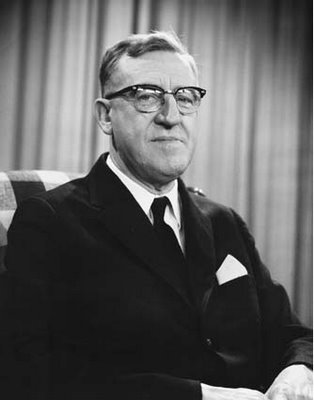
However, the Prime Minister at the time, John Howard refused to censure Hanson or speak critically about her, acknowledging that her views were shared by many Australians, commenting that he saw the expression of such views as evidence that the ‘pall of political correctness’ had been lifted in Australia.
Despite repeated denials of the racism charge by Hanson, the public discussion of whether or not Hanson’s views were racist quickly became the topic of academic interest in Australia.
For example, at the 1997 annual conference of the Australian and New Zealand Communications Association (ANZCA) at La Trobe University, a paper was presented with the title ‘Phenomena and Epiphenomena: is Pauline Hanson racist?’
In 1998, Keith Suter argued that Hanson’s views were better understood as an angry response to globalisation. By August 1998 perceptions in Asia of Hanson’s popularity being related to racism were affecting international relations and prompted Alexander Downer, Minister for Foreign Affairs under John Howard to issue a media release calling on Pauline Hanson, David Oldfield and David Ettridge to “disassociate themselves from the racist slurs being promoted in the Asian media by people claiming to be their closest supporters”.
In 2000, the University of NSW Press published the book Race, Colour and Identity in Australia and New Zealand, which identified Hanson as a central figure in the ‘racism debate’ in Australia of the 1990s, noting that senior Australian academics such as Jon Stratton, Ghassan Hage and Andrew Jakubowicz had explored Hanson’s significance in an international as well as national context.
In 2004, Hanson appeared on the nationally televised ABC interview show Enough Rope. Archival footage from a 60 Minutes program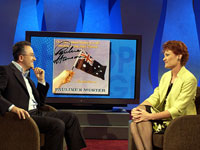
Hanson was then challenged with derogatory comments about Aboriginals made by her “fellow travellers”. Hanson distanced herself from the comments, by countering that several elected candidates of One Nation were “radicals that tagged themselves to me”. She also stated that she had limited knowledge of the her autobiography Pauline Nation’s ‘The Truth’ and its contents.
In 2006, ten years after her maiden speech, its effects were still being discussed within a racism framework, as well as being included in resources funded by the Queensland Government on ‘Combating racism in Queensland’. Also, in December 2006 The Age reported that Greens leader, Senator Bob Brown had labelled Hanson a “bloodsucker” over her suggestion that Africans are bringing AIDS into Australia.
She also said she was concerned by the ease with which people were able to gain Australian citizenship, especially Muslims and Africans. She also made claims that “You can’t have schools not sing Christmas carols because it upsets others”. And to be fair…this is the now the norm in the UK.
In relation to African immigration, Hanson also said: “Do you want to see your daughter or a family member end up with AIDS or anyone for that matter?”.
She may, or may not, have a points to raise about immigrants, but she certainly is an interesting character.
I say, get her over to Perth…get her on the radio…it won’t be boring.
by Sel Hurst

